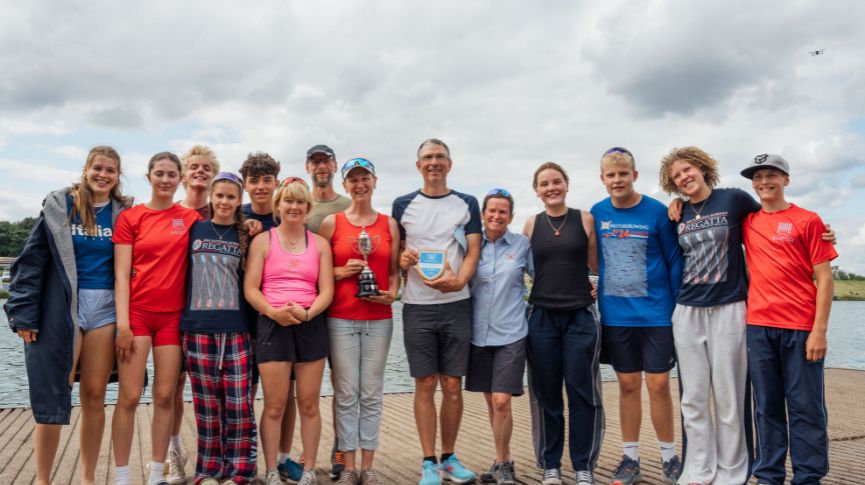Tips for rowers: how to stay healthy during the COVID-19 lockdown
How can you stay fit and healthy during the coronavirus restrictions? GB Rowing Team practitioners share their top tips

Since 24 March, the UK has been in lockdown in order to slow the spread of coronavirus. So what are the priorities for rowers right now? Six GB Rowing Team practitioners offer their thoughts.
1 – A flexible training programme
“It would be easy for people’s physical health and emotional well-being to be impacted at present. To make this a priority why not introduce more flexibility and self-determination into the training programme?
Allowing people to complete sessions in a way that works for them both across the week, and in the modality that they’re motivated for, could help people safeguard their health and leave them ready to emerge back onto the water with renewed energy and enthusiasm when the time comes.”
Tom Dyson, Chief Coach – Paralympic Programme
2 – Routine and reflections
“During the lockdown I’m finding it beneficial to keep a routine. I keep in touch with the rowers I coach and support them. I also run or ergo which makes me feel fit and refreshes me mentally.
Doing some gardening and cooking gives me a sense of enjoyment because I don’t normally have the time to do such things in ‘normal’ life. Above all, I’m constantly reflecting on what I am learning through this and what I will take forward once we come out of the other side.”
Jane Hall – High Performance Coach
3 – Nourish your soul
“Get out and go for a walk or a run, it always clears you mind. Where possible, swimming in a lake takes you away from the day-to-day worries. And finally, a good block of cheese is great for the soul!”
William Winstone – Performance Psychologist, GB Para-Rowing
I’m constantly reflecting on what I am learning through this and what I will take forward
4 – Nutrition: do the basics brilliantly
“Include a protein-rich food at each meal – e.g. eggs, dairy foods, meat, fish or pulses – to repair and build muscles. Be smart with your carbohydrate choices: opt for versions that release energy slowly – e.g. oats, sweet potato or multigrain bread.
Eat a rainbow of fruit and vegetables every day – as many colours as possible to increase your intake of antioxidant compounds to help support your immune function.
Remember to stay hydrated by sipping on fluids throughout the day. Avoid a dry mouth as saliva contains proteins with antimicrobial properties, which help prevent viruses or bacteria entering via the mouth.”
Wendy Martinson – Nutritionist
Get out and go for a walk or a run, it always clears you mind
5 – Target strengths and weaknesses
“Having clear goals of areas to work on will help with motivation for training, particularly if training on your own for an extended period.
It’s standard practice to target your weaknesses, and while this is important, that approach can be hard to sustain every session for a long period of time.
So, it’s also important to know the things you’re good at and aim to have sessions where you build on your strengths and remind yourself of the things that you’re good at. This will help keep training enjoyable and keep your confidence high.
Working with your coach or another rower in your crew, make a list of the things you do well, and the things you need to improve. Spend some sessions working on your weaknesses, but also some sessions where you target your strengths and make them even stronger.”
Tom Pattichis – High Performance Coach
Slow down, connect with family and friends and get plenty of rest
6 – Reduce anxiety and maintain life balance
“Regular physical activity can help to support your immune function and reduce feelings of stress and anxiety during this time. However, be cautious with drastic changes to your habitual training volume and intensity as this may suppress immune function, especially if you are unaccustomed to it.
Strike a balance and use some of your newly found spare time to slow down, connect with family and friends and get plenty of rest. Try new hobbies and complete tasks that you wouldn’t usually make time for.”
Sarah Moseley – Lead Physiologist







